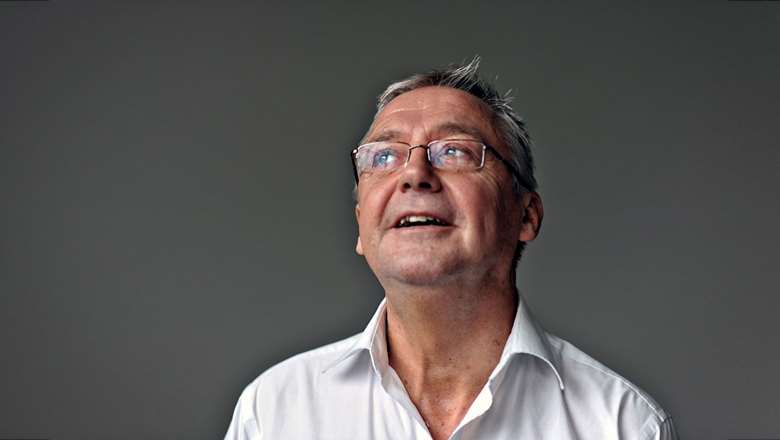Graham Vick, 1953-2021
Simon Smith
Monday, July 19, 2021
Opera director Graham Vick has died from complications arising from Covid-19.

This story originally appeared in Opera Now magazine.
Graham Vick, who has died aged 67 from complications arising from Covid, was among the most brilliant, passionate and original opera directors of his generation. As artistic director of Birmingham Opera Company, which he founded in 1987, he became real trailblazer and a visionary, working on a vast canvas in unusual spaces ranging from circus tents to industrial warehouses and bringing together motley crews of professional and amateur performers drawn from all corners of Birmingham’s diverse community to stage spectacular, exhilarating and moving productions of opera.
Vick’s productions in Birmingham were inspirational, challenging our very notions of what opera can be. He staged the UK’s first production of Verdi’s Otello featuring a Black singer (Ronald Samm) in the title role. His ambitious staging of Stockhausen’s insanely complex Mittwoch aus Licht featured four real helicopters, a singing camel and an airborne string quartet. equally impressive was Khovanskygate, a hardhitting, contemporary and highly political version of Musorgsky’s Khovanshchina, first staged in 2014, and a virtuosic production of Tippett’s The Ice Break in 2019.
Vick was born in Birkenhead in 1953 and trained at the Royal Northern College of Music in Manchester. Aged just 24, he directed a notable production of Holst’s one-act opera Savitri for Scottish Opera. In 1984, he was appointed director of productions at the Glasgow-based company. In the same year, he staged Bernstein’s West Side Story in a disused mill in Yorkshire, featuring 300 unemployed people from the local community.
He cut his operatic teeth on small-scale productions with Scottish Opera-Go-Round. It was there that he developed his desire to take something more adventurous out on the road. He got his first chance to put his ideas into practice when he became artistic director of an early version of English Touring Opera, then based at the University of Warwick. When, in 1987, the Arts Council suggested the merger of ETO with Birmingham Music Theatre, and the city of Birmingham agreed to provide most of the financial assistance, City of Birmingham Touring Opera was born.
It soon became clear that what Vick had founded was something more than a traditional small-scale touring company. Quirkiness, experimenting and inventiveness were core to Vick’s mission. Operas, including a cut-down Ring cycle re-orchestrated by a young Jonathan Dove, may have been edited to lose original staging of large choral numbers and played by a small ensemble, but there was never a feeling of anything being second-best.
Vick’s deeply felt, thoughtfully conceived work while he was the director of productions at Glyndebourne between 1994 and 2000 brought him international acclaim. His superb Eugene Onegin at Glyndebourne remains a benchmark for opera directing, displaying theatrical flair, insight and individuality. His Mozart/Da Ponte trilogy divided audiences and critics (Don Giovanni had a very realistic-looking model of a dead horse suspended over the stage throughout most of the production). Nevertheless, as a body of work, it amounted to an extraordinary extended essay about how the fabric of theatre is woven, and how the stories of opera wield power over us. For Vick, opera had a spiritual dimension: ‘You can’t deny God and do opera,’ he said. ‘The human voice is the natural conduit for the soul.’
Although he directed at many of the world’s major opera houses, including the Royal Opera in London, La Scala in Milan and The Met in New York, Vick naturally gravitated to lesser-known houses, especially in Italy where he felt that, unlike in Britain, opera was deeply respected as a cultural force and embedded in community life.
Ill health meant that Vick had to give up directing a new production of Verdi’s Un ballo in maschera at the Teatro Regio in Parma this autumn. Parma’s Verdi Festival, opening in September, will be dedicated to his memory.
Vick, who received a knighthood in 2021’s New Year’s Honours list, described himself as a musician rather than a director: ‘At heart,’ he would say, ‘I’m just a frustrated conductor.’